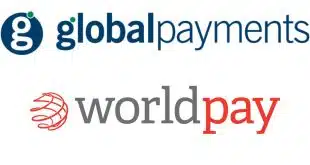Zooz Mobile Ltd. is preparing to launch in September a transaction-routing engine that will let so-called omnichannel merchants run payments for e-commerce, mobile commerce, and in-store commerce through a single pipe.
The engine, tentatively called the Omnichannel Generator, will seek out the optimal path for each transaction, allowing merchants to take advantage of the lowest fees and lowest return rates available for that payment, Oren Levy, Zooz’s chief executive, tells Digital Transactions News.
The service will also let merchants consolidate data most merchants now run through separate acquiring pathways, he says. “Some retailers we work with have different acquirers for in-store and e-commerce transactions. Now, if it goes through the same routing engine, there’s a lot of cool stuff we can do,” Levy says.
Four-year-old Zooz has raised $16.5 million through a seed, Series A, and Series B round of funding, with the Series B round taking place earlier this month for $12 million from half a dozen investors, including existing investors Xseed Capital, Rhodium, and lool ventures.
The startup first made its mark early in 2012 with a software development kit consisting of three lines of code that allowed developers to build in in-app payments for applications running on both iOS and Android devices. More than 1,000 developers signed up for the SDK in its first two months of availability.
The Omnichannel Generator, which Levy calls a “temporary name,” is derived from a so-called smart routing engine the New York City-based company rolled out a few months ago. This engine, intended for large e-commerce merchants selling to customers in multiple countries, allows retailers to find the optimal pathway for each transaction, taking into account such factors as cost and decline rates.
“Most big merchants for domestic business have one or two [acquiring] connections, it’s true, but I’m talking about those that sell in Asia and Europe as well and need multiple connections,” says Levy. “One U.K. retailer we work with has 25 acquirers globally, but domestically only one or two.”
Managing so many processing links for cross-border commerce is, Levy says, “a hassle,” which is where Zooz’s smart routing engine comes in. Zooz is not an acquirer and does not stand in as the merchant in an aggregation arrangement. Instead, its engine sits between the merchant’s point of sale and its processing hosts, routing transactions to each acquirer according to processing and currency-conversion costs, acceptance rates, and other factors.
Levy, however, leaves the door open to merchant aggregation later on. “That’s something we’ve considered for some time,” he says. “We’ll see. Right now, we’d like to focus our R&D [on the smart routing engine], but down the line PSP/aggregation is something we’d like to explore.” A PSP, or payment-services provider, signs up merchants in bulk and processes for them on its merchant account rather than underwriting each one for its own account.
Zooz’s R&D office, which is headquartered in Israel, has been busy. With the Omnichannel Generator, for example, an authentication token will allow merchants to link payments data with each customer, so the customer’s history both in-store and online can be tracked in a process Zooz calls “payment datafication.” Nor has that original in-app payment plug-in been forgotten. Zooz includes it now in its routing engine.
Levy says “several thousand” retailers are using Zooz, with most of these currently mid-size sellers. “Over the last year or so, we started going after the larger merchants, the more enterprise-class merchants,” he says. As a result of this effort, two big clients now working with the startup are IKEA and Groupon.
Zooz charges a fee that depends on volume but generally runs from 20 cents to a quarter per transaction, according to Levy. Merchants can add features, such as alternative payment options like PayPal, with an annual license fee. “One might assume that a multinational retailer could generate significant savings by optimizing payments to the right processor, and one could also assume that a processor would find value in delivering a differentiable capability to integrate online and physical payments,” says Thad Peterson, a senior analyst at Boston-based Aite Group LLC, in an email message. “If the value is there, then the pricing works.”





